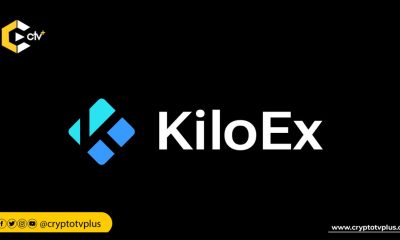FEATURED
Institutions in Central, Northern, & Western Europe embrace DeFi and Web3 – Chainalysis

Central, Northern, and Western Europe (CNWE) has become a prominent player in the global cryptocurrency space, establishing itself as the second-largest cryptocurrency economy worldwide, with North America being the only region surpassing it.
Chainalysis conducted an extensive analysis of the cryptocurrency trends in CNWE and released a report. The report revealed that CNWE made a significant contribution to the global cryptocurrency transaction volume, accounting for a substantial 17.6% between July 2022 and June 2023.
Moreover, during this period, the region received a staggering $1 trillion in on-chain value, reflecting a robust demand for cryptocurrencies in CNWE.
The dominance of DeFi in CNWE
Diving into DeFi, Chainalysis said that decentralized finance (DeFi) has become a dominant force in Central, Northern, and Western Europe (CNWE), representing a substantial 54.8% of the total cryptocurrency value received in the region. DeFi, with a particular focus on decentralized exchanges (DEXes), has taken a leading role in driving cryptocurrency adoption in CNWE.
It added that one key driver for this surge in DeFi adoption is the supportive regulatory environment that CNWE has established for various web3 initiatives. These regulations have encouraged institutional players to venture into the realm of DeFi, signifying a notable shift in their approach.
In essence, DeFi, with a particular focus on decentralized exchanges, has gained significant traction in CNWE due to favorable regulations, making it a cornerstone of the region’s cryptocurrency landscape.
Divergent trends in inflows
Furthermore, Chainalysis said that when the cryptocurrency inflows into both centralized and decentralized exchanges are examined during the first half of 2023 and compared to the same period in 2022, there are significant variations in activity within the Central, Northern, and Western Europe (CNWE) region.
It added that 21 countries in CNWE experienced a decrease in inflows to both centralized and decentralized exchanges. This decline suggests that in these countries, there was a reduced interest in participation in cryptocurrency trading and investment during this period.
However, seven other countries, specifically Albania, Luxembourg, and the United Kingdom defied this trend by witnessing an increase in inflows to decentralized exchanges.
The report revealed that smaller countries like Albania and Luxembourg exhibited the most significant growth in DeFi activity when compared to their overall transaction volume.
This suggests that in these smaller economies, DeFi gained a substantial foothold and played a more prominent role in their cryptocurrency ecosystems.
UK’s role as a crypto-economic giant
The United Kingdom stands out as CNWE’s largest crypto economy, ranking 14th on the Global Crypto Adoption Index for grassroots adoption and third in the world for raw transaction volume.
The U.K., with an estimated $252.1 billion received in the past year, is witnessing substantial consumer interest in crypto, both as a technological phenomenon and an investment opportunity.
On regulation, Chainalysis added that developments in the U.K., including the Financial Services and Markets Act 2023 (FSMA 2023), have sparked mixed reactions within the crypto industry.
While some, like venture capital firm Andreessen Horowitz, view the regulatory changes positively, the U.K.’s crypto market is still waiting for the full impact of these developments.
The upcoming introduction of the FCA Financial Promotions Regime in October 2024 poses additional challenges and underscores the need for clarity and guidance in the crypto space.
The future of CNWE’s crypto landscape
Finally, the report read that, despite being in its early stages, the crypto industry in CNWE holds immense potential for innovation, particularly in areas like smart contracts, NFTs, and DeFi.
The interaction between traditional financial institutions, tech startups, and regulators will be a pivotal factor in shaping the industry’s trajectory. The regulatory landscape, including the Markets in Crypto-Assets (MiCA) framework, will continue to evolve, with the need for harmonization among European countries and a balance between regulatory requirements and industry growth.
Read also; UAE sets regulatory standards, Turkey explores NFTs, Saudi Arabia sees crypto surge: Chainalysis insights
























